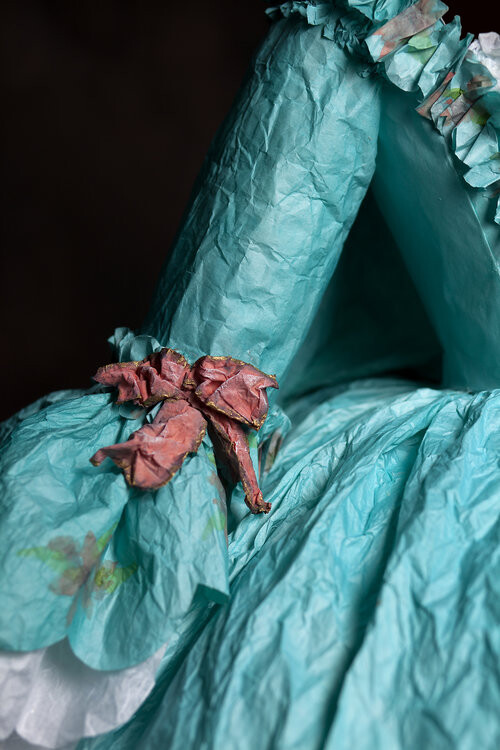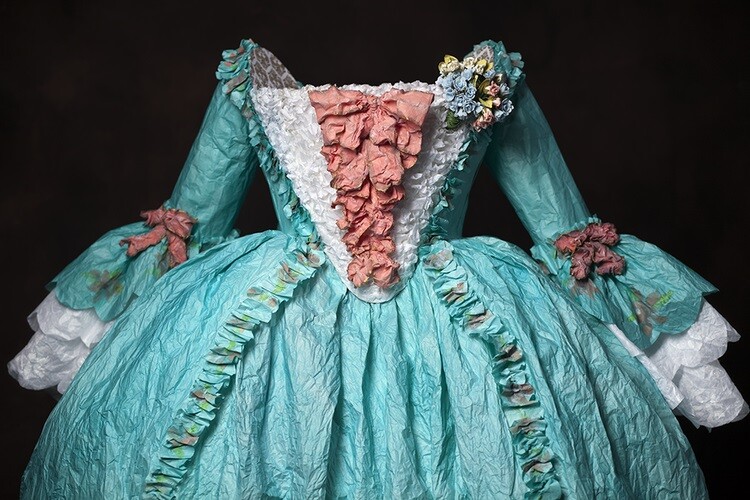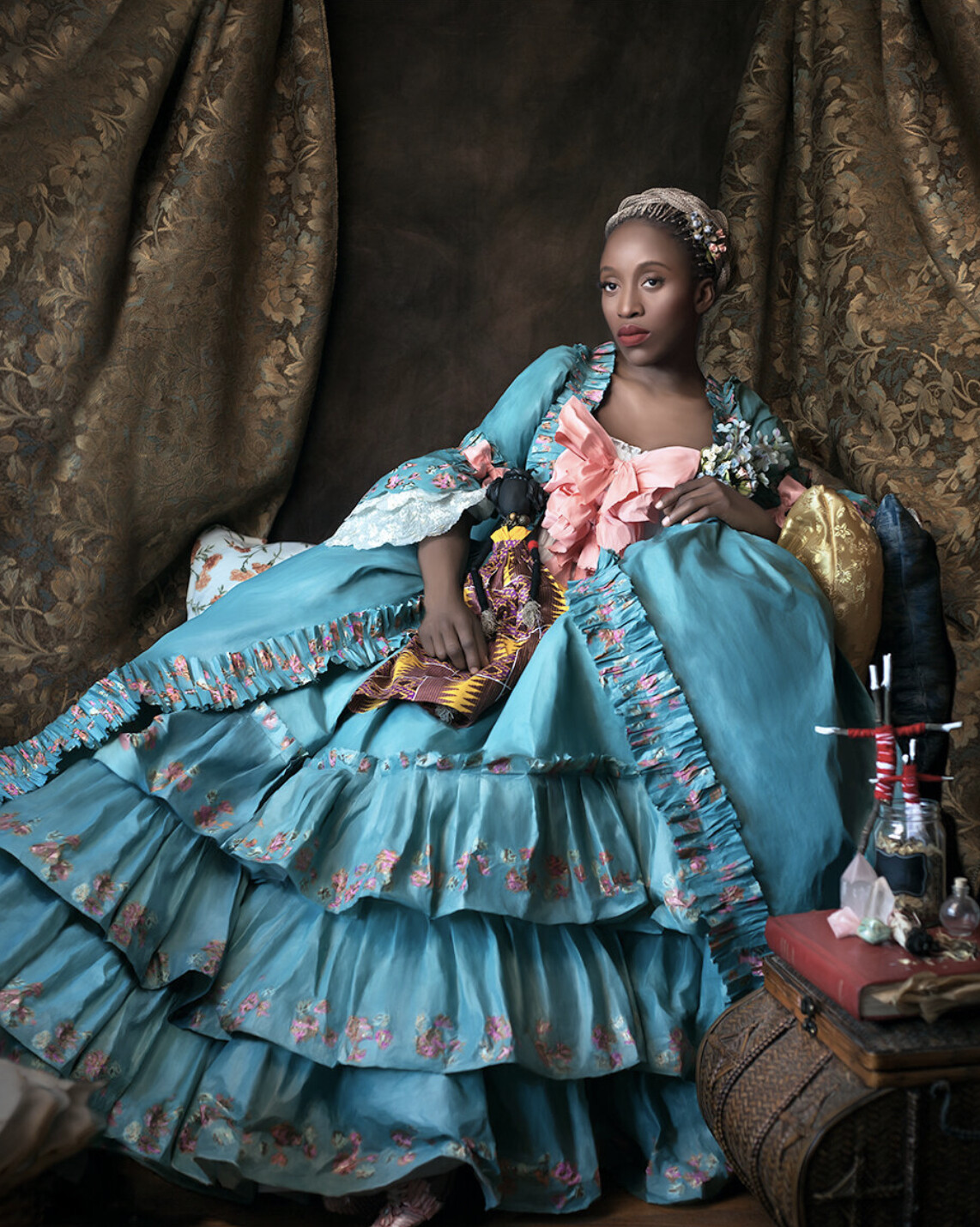In 2021, the Beinecke Library acquired works from the of Rewriting History series by Fabiola Jean-Louis; the library’s set of 12 photographic prints document Jean-Louis’s wearable paper sculptures in tableaus devised by the artist. The collection includes “Marie Antoinette Is Dead” pictured here (see detail images of the featured paper sculpture below); the complete set of prints can be seen on Fabiola Jean-Louis’s website.
Rewriting History engages with historical materials and contexts, including a document in the Beinecke Library’s collections. “Madame Beauvoir’s Painting” includes multiple representations of the famous photograph circulated by American abolitionists known as “The Scourged Back;” the photograph, a copy of which is in the Beinecke Library, features a formerly enslaved man named Gordon showing the keloidal scars on his back, the result of repeated whippings. In Jean-Louis’s photograph, the pictured artist remakes this painful and powerful image as a painting; the photo also reveals a representation of scaring on the paper dress she is wearing. Alongside the Beinecke Library’s copy of the 19th century photo, Jean-Louis’s work raises fascinating and important questions about the complicated work of critically viewing, more fully understanding, and recontextualizing the images and documents of America’s past. (See “Madame Beauvoir’s Painting” on the artist’s website; Orbis record for Copy Photograph, “Gordon, A Runaway Slave,” circa 1863.)
As a group, the Rewriting History photographs expand this historical engagement, calling to mind still other compelling questions about actual and metaphorical intersections of body and text, historic paper making processes, and both race and gender in American history and culture.
Rewriting History is also thought-provoking as a work that makes of material history a layered critique of common mythologies of 18th and 19th century culture. In Jean-Louis’s wearable paper sculptures, paper—a technology of both the historical record and textual and visual art making—is itself transformed and re-envisioned. The elaborate beauty of Jean-Louis’s period-garment-inspired-paper-sculptures is undermined by the contradictory realities of paper—its heft and inflexibility, its weight and fragility. Videos of Jean-Louis dressing models in her paper garments are instructive especially in this regard: they allow one to see unequivocally the enormous care and labor that is required to prevent a romantic view of the past from being damaged–torn, crumpled, fragmented–or destroyed.
The Rewriting History photographic prints now at the Beinecke Library will allow students and scholars to explore and expand on these and other ideas in various ways. At the Beinecke, this paper record of and elaboration upon Jean-Louis’s wearable sculptures can be studied in the context of a vast, diverse, and complex library collection—a collection that itself records both violent American and European histories and the urgent and ongoing work of reckoning with our common past.
Fabiola Jean-Louis was born in Port Au Prince, Haiti on September 10th, 1978 and moved as a child to Brooklyn, NY, where she currently works. She studied at the School of Fashion Industries in New York and the Art Institute of Pittsburgh; she now works in a variety of media—including sculpture, photography, ceramic, and film. She has been awarded residencies at the Museum of Art and Design (MAD), New York City, and LUX Museum, San Diego. Her work has been exhibited at DuSable Museum of African American History, and Andrew Freedman Home.
Fabiola Jean-Louis’s Rewriting History photographs are part of the James Weldon Johnson Memorial Collection of African American Arts and Letters at the Beinecke Library, a key archive of African American history and culture. The Collection is world renowned for its literary archives and book collections; less well known are the Johnson Memorial Collection’s rich photographic collections and art holdings, including works by African American artists and photographers including Augusta Savage, James Van Der Zee, Lois Mailou Jones, Roy DeCarava, and others.


